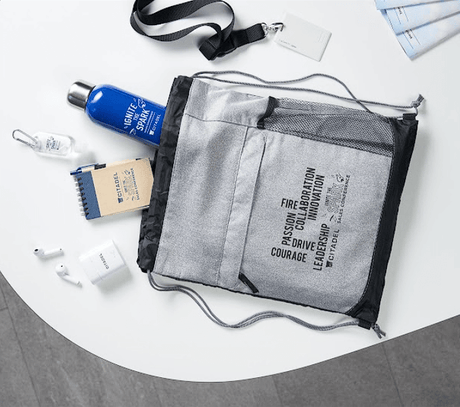T
hink about the things that make you happy. For parents, it must be looking at their toddler after a long day’s work or if you’re in college, it must be finishing your assignments and going out with your friends. There are a lot of ways you can perceive happiness, it’s relative and it is what fits your context. In the book, Psychology of Happiness (2009), author Michael Argyle states “…the very concept of happiness is obscure and mysterious.” People can be happy for a variety of reasons and it’s not something that we can just tell by looking at someone from an outside perspective. In most instances, the belief is that we get happy when we gain something, which could be a new job or a new car, but it mostly has to do with some element of personal gain. This is where the idea that happiness is the gift of giving becomes particularly intriguing. So, the concept that when we are losing something that most people want to have more of (money), increases perceived happiness seems out of context. However, in the research done by Dunn et al (2008), they presented how prosocial spending (spending money on others) increases perceived happiness much more than when you spend money on yourself. There have been various research done supporting the same argument but this paper will try to dive into different aspects of spending money and its relationship with increasing happiness, including the feelings when you receive a gift.
Are you looking for the perfect gift? Watch Our TED
Talk!

Does happiness depend on who you spent the money on?
Let’s compare two situations. You went for a vacation to a place and it happens to be where one of your family relatives lives that you don’t meet very often and know much about. You thought it would be nice to take a gift with you, and they were very glad. Now, in a different situation, you bring back a gift from your vacation for your parents, who called you every day and missed you throughout your vacation. In both these cases, there might be a sense of happiness from the reaction you get or just because of your altruistic value. However, the case of bringing a gift back for your parents could be argued to elicit much more happiness than the one you got for your family relative. This difference in the level of happiness you experience can be a testament to the saying that happiness is the gift of giving, highlighting how the act of giving, especially to those close to us, can enhance our own sense of joy and satisfaction.
Study
In a study conducted by Aknin et al (2011), they focused on what provides greater happiness,
prosocial spending on strong ties, or weak ties. They considered strong ties to be close friends and
family members while the weak ties were characterized by a relationship with “less frequent
contact, lower emotional intensity, and limited intimacy (Aknin et al, 2011).”
Results
Their results were aligned with the hypothesis of the paper that spending money on strong ties will generate more happiness than spending money on weak ties. As explained from the example above, we can see how both the cases can draw happiness for a person, but it’s about the difference in the degree of happiness. This brings us to an important realization: happiness is the gift of giving. Whether it's giving gifts to your parents (a strong tie) or to family relatives (a weak tie), the act of giving itself fosters a sense of joy and fulfillment. Similarly, the feelings when you receive a gift contribute to this happiness, although its intensity may vary depending on the closeness of the relationship.
Discussion
This doesn’t mean that you should stop spending money on a person that you don’t consider to be a strong tie. Hu et al (2021) in their paper suggest that gift-exchanging can create strong social connectedness between people who are involved in the process of gift-giving. This means that there is a good possibility that you can transform a weak tie into a strong social tie. In both cases, your perceived happiness increases, but as a bond gets stronger, your happiness will increase. This phenomenon illustrates the adage that happiness is the gift of giving. It’s not just about the material value of the gift, but also about the feelings when you receive a gift, which contribute to the strengthening of relationships and amplification of happiness. The act of receiving a gift can evoke a sense of appreciation and emotional connection, further enhancing the social bonds that are central to this process.

Influence of choices in prosocial spending and happiness
Choice has a lot to do with how we perceive our emotions. A sense of autonomy is based on
whether we have control over our choices or not. For example, you have been working very hard
in your job and you want to upskill by taking a certification that would help you with your work,
this is an active choice you make. From the example, your boss sees you working hard and he
wants you to take up a certification to upskill yourself which would make it a passive choice.
Study
Moche et al (2021) experimented to find whether choice influences happiness during prosocial
spending. They examined differences between three criteria:
1. prosocial and personal spending.
2. Prosocial spending in active and passive choices.
3. There is a default setting for either prosocial spending or personal spending.
Procedure
In each case, participants of the study got an amount of money along with a bonus amount. In the
control condition, the money could be spent however they wished, in the passive choice condition,
the bonus would be donated to a charity, and the active choice participants had a choice to donate
to the charity or keep the money. The default conditions had two groups who were either given the
default prosocial option where the money would go to charity unless they wished to keep it for
themselves or the default prosocial option where the money would be theirs to keep unless they
wish to give it away to the charity. Of the two choices, you’re getting upskilled in both, however
choosing to do it yourself instead of someone enforcing it would have a greater sense of autonomy.
Confused what to gift? Here’s How We Provide You
Researched-based Gifts & Giveaways!

Results
The results were aligned with the first hypothesis that people feel much happier when they are involved in prosocial spending compared to personal spending. The study clearly demonstrated that happiness is the gift of giving, as individuals who participated in prosocial spending felt a greater sense of fulfillment and joy. Secondly, this study wanted to find if there is an influence of active and passive choices on prosocial spending, the results displayed that passive choice had greater perceived happiness compared to active choice. For the third hypothesis of default conditions, it was seen that changing the default, especially when people opt in to prosocial spending on the charity, yielded greater happiness compared to following the default.
Discussion
The result from the study displays that the condition of choices influences happiness when it comes to prosocial spending. We would commonly believe that active choices would produce more happiness as it’s a decision that we make, but in this study, the active decision would make a person choose between having to keep the money for themselves or donate it. This meant that there would be participants who chose to keep the money. The study did not test the happiness of participants who actively decided to donate or keep the money. However, in a comparison between passive choice (where the money would go to the charity) and active choice, the result showed that when the money was going to a charity during a passive decision, over which they had no control, it generated more happiness than actively choosing. This finding also extends to understanding the feelings when you receive a gift. It suggests that the joy of receiving, particularly in a prosocial context, can be profound, even when the recipient isn't actively involved in the decision-making process. This supports the argument that prosocial spending contributes to more happiness, even when you don’t have control over the decisions.
Call Us For A FREE Sample:
Conclusion
From the study presented above, it is clear that prosocial spending has a greater positive impact on happiness compared to personal spending. We examined various conditions of prosocial spending, such as spending on strong ties and weak ties, and the influence of the nature of choices on happiness and prosocial spending. The results of the paper show that no matter what conditions are set, prosocial spending equates to generating happiness on a greater scale. This underscores the profound truth that happiness is the gift of giving. Whether it’s through a passive or active choice, or whether it's for someone close or a distant connection, the act of giving itself is a powerful catalyst for happiness. Simultaneously, this research sheds light on the feelings when you receive a gift, revealing that the joy of receiving, especially in a prosocial context, can be equally profound. It's not just the receiver who benefits from generosity but also the giver, who experiences an enhanced sense of joy and contentment from the act of giving. Thus, the emotional dynamics of both giving and receiving play a crucial role in shaping our experiences of happiness.
Study 1
We saw that prosocial spending on a strong tie provided more happiness compared to spending
money on a weak tie. However, it is now understood that spending money on both scenarios
yielded happiness, and only the degree of happiness changes. Buying gifts (prosocial spending)
creates social connectedness and therefore changing a weak tie into a strong tie, producing greater
happiness in the long run.
Study 2
When there’s a choice to not participate in prosocial spending (donating), it creates a sense of
unhappiness compared to when there’s no choice but to donate, which creates more happiness.
Even when there’s no sense of control or autonomy; when it comes to prosocial spending, it
generates happiness. We can understand how helpful prosocial spending can be for happiness even
in the case where we have no active choice over our decision to do so. This helps us to understand
that participating in prosocial spending (buying gifts, donating) can be very helpful to be happy in
the social context.
Suprabh Kesav,
Psychology Blogger,
The Shared Secrets Lab,
GiftAFeeling Inc.
Read The Official Research Paper On - Happiness is the Gift of Giving: Delving into the Connection Between Happiness and Gift-Giving Across Various Conditions
Frequently Asked Questions (FAQs)
1. Why do I feel happy whenever I give gifts?
You feel happy when giving gifts because it activates the brain's reward centers, releasing feel-good chemicals like dopamine and endorphins. This process, known as the "helper's high," creates a sense of joy and satisfaction. Giving gifts fosters connection and empathy, enhancing personal happiness and strengthening social bonds.
2. Why does giving gifts feel good?
Giving gifts feels good because it elicits a sense of joy and fulfillment. This act of generosity triggers the release of endorphins, the brain's 'feel-good' chemicals, creating a positive emotional response known as the 'helper's high'. It strengthens social bonds and reflects empathy and thoughtfulness, enhancing personal happiness.
3. What is the feeling of gifting?
The feeling of gifting is a blend of joy, satisfaction, and anticipation. It's the emotional pleasure derived from giving, marked by a sense of fulfillment in making someone else happy. This act of generosity fosters a strong sense of connection and empathy, enhancing personal happiness and strengthening social relationships.
4. Why does gift-giving make us happy?
Gift-giving makes us happy because it triggers the release of endorphins and dopamine, the brain's feel-good chemicals. This act of generosity fosters a deep sense of connection and empathy towards the recipient. It brings joy and satisfaction from making someone else happy, enhancing our own emotional well-being and social bonds.
5. What is the relationship between giving and happiness?
The relationship between giving and happiness is strongly positive. When we give, it activates our brain's reward centers, releasing endorphins and dopamine, which are associated with pleasure and satisfaction. This act of generosity enhances our sense of social connection, empathy, and fulfillment, leading to increased happiness and emotional well-being.











